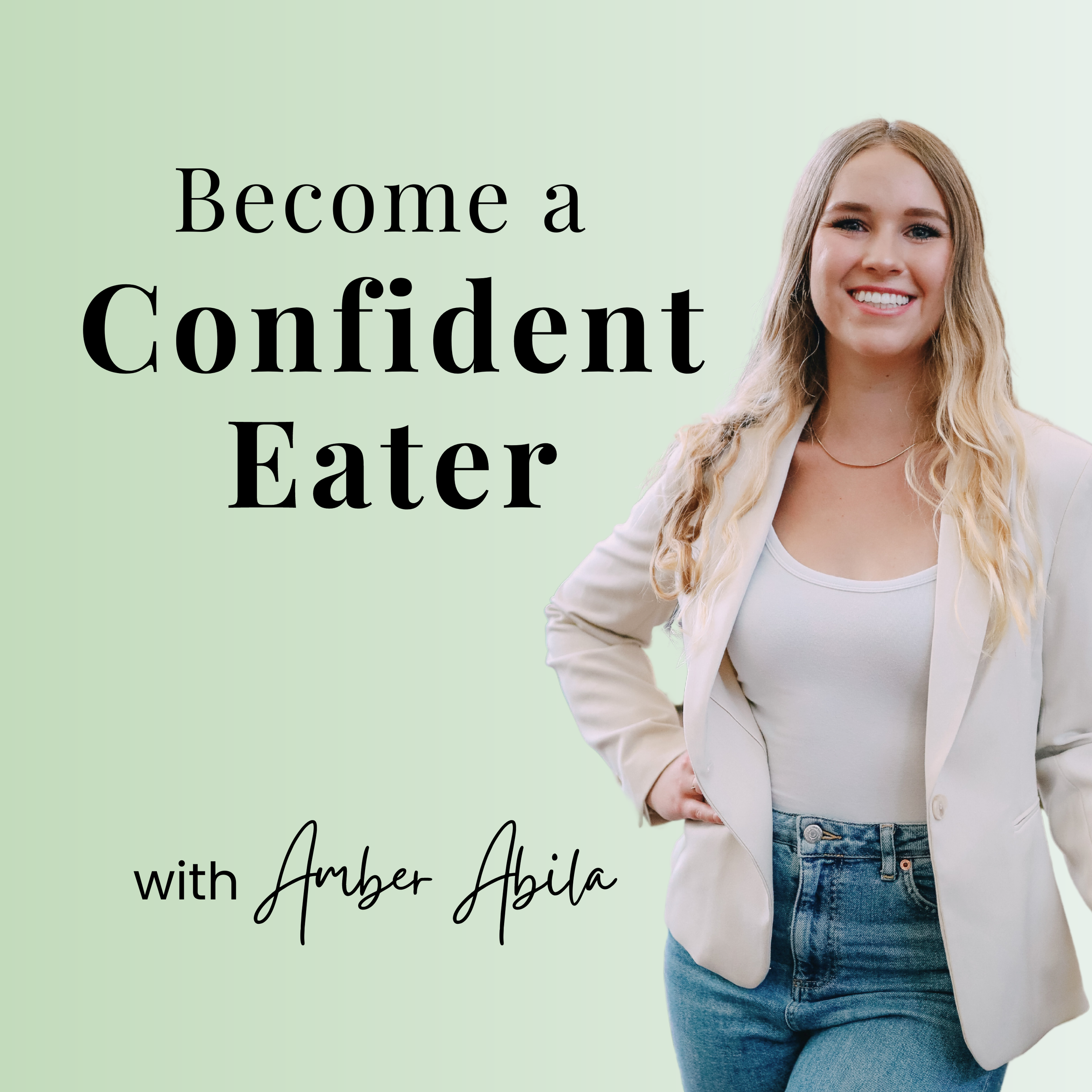Ep 27- You Deserve to Stop Overeating
August 08, 2024
Have you ever thought “my eating habits aren’t THAT bad?”
I see so many people thinking they aren’t struggling enough to prioritize their eating.
But the truth is, we live in a culture of disordered eating.
And you DESERVE to feel amazing around food!
I’m here to empower you to see the possibilities of food freedom no matter what your struggle looks like now.
I cover…
my personal eating disorder therapy experience
understanding the eating disorder criteria
the importance of addressing overeating and binge eating early on
overcoming the cultural norms of diet culture, disordered eating, and weight obsession
My Personal Experience With Eating Disorder Therapy
I felt this the most when I first went to therapy. I was struggling with bulimia. I was binge eating and purging. During my first appointment, we did a checklist, took some measurements and vitals. I remember the therapist telling me I barely met the criteria for bulimia, but they could still help me.
And I thought, what the heck. I will show you what is bad enough for treatment. I will make my vitals worse. You will have to send me to all your other people.
The diagnostic definition of bulimia requires purging at least once per week for three months. What if it is every other week? What if you binge inconsistently? What if it happens on and off?
This episode is for you. Even if you feel like you do not fit the full criteria for an eating disorder but something still feels off.
Why You Deserve to Heal Your Relationship With Food
Eating is a basic foundational need. If that part of your life is not going well, it affects everything else.
It is harder to show up in your career. Harder to be present with family and friends. It impacts your romantic life, your health, your finances, and your confidence.
But when you heal your relationship with food, all those other areas become easier. That is why I recommend making your eating goal your number one goal.
Not forever, but for now. Focus on healing your relationship with food first.
Awareness Is the First Step to Change
Many of us are really good at hiding our habits. From others and from ourselves. But hiding only delays healing.
If we do not recognize what is happening, we cannot change it.
Being honest about your eating is the first step. Awareness is always the foundation of growth.
What If It Is Not That Bad?
Even if you do not have a full blown eating disorder, it can still be worth it to take a closer look.
Think about it like drinking. Someone might not be an alcoholic but still benefit from cutting back.
Same thing with eating. You can address it before it becomes something truly harmful. Waiting often makes things worse.
I personally wish I had gotten help earlier. It would have saved me damage to my teeth, weight gain, and so much mental distress.
The Sooner You Get Support, the Easier It Is to Change
Eating habits get wired into the brain. Every time you binge or overeat, your brain votes to repeat it.
The longer it goes on, the more work it takes to undo.
That is why it is always easier to start today than tomorrow. Even if you have been struggling for decades, change is possible. I have worked with women who struggled for 50 or 60 years and we still made massive progress.
We Live in a Culture of Disordered Eating
Just because a behavior is normal does not mean it is healthy.
Seventy five percent of women aged 25 to 45 engage in disordered eating.
If your eating looks like the people around you, that might not mean you are fine. It might just mean the culture is unhealthy.
What Natural Eaters Do Differently
Natural eaters do not think about food all day. They do not feel anxiety at restaurants. They are not afraid to keep food in the house.
They do not eat to physical discomfort often. They do not live with food drama.
So if you are resonating with the anxiety, the guilt, the cycling on and off, I want you to know there is a better way.
You Deserve More Than Just Getting By
If I could wave a magic wand to change how you feel around food, would you want that?
If yes, that is reason enough to get help.
Even if your weight is considered normal. Even if others think you seem fine. Even if you do not fit a clinical diagnosis.
Only six percent of people with eating disorders are underweight. So do not let insurance definitions determine your worthiness of support.
You deserve to feel good in your body. You deserve to feel free.
Support Is Available
If you are tired of your eating habits, I can help. I have been there, and I have a step-by-step plan to get out.
The Confident Eater group program is open until August 23rd. There are private coaching options too. Book a consultation call with me so we can figure out what path is best for you.
And even if you decide not to work with me, the consultation call is a powerful first step.
